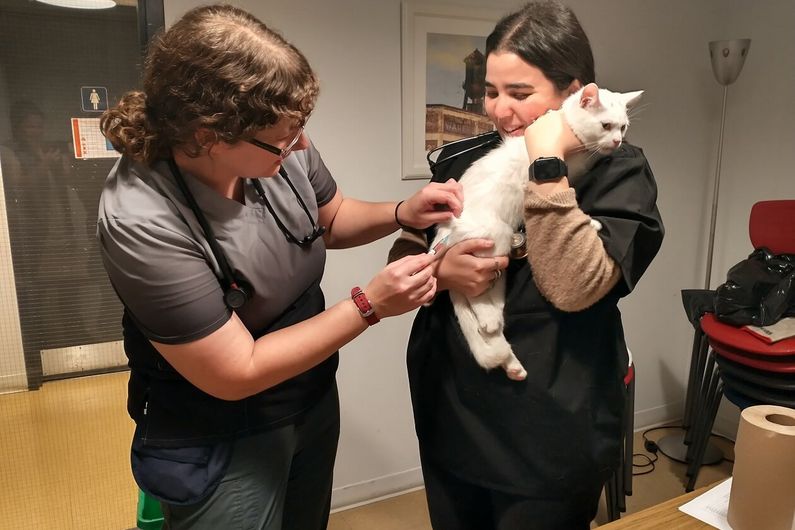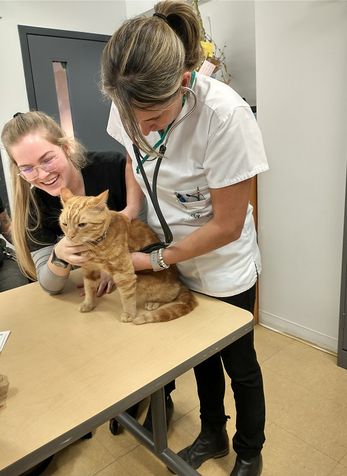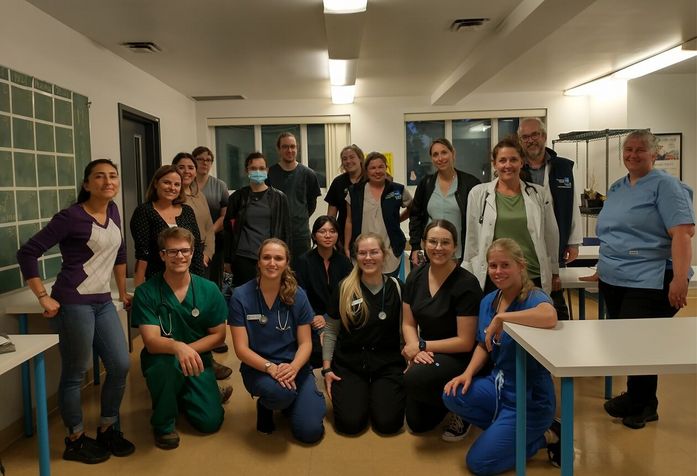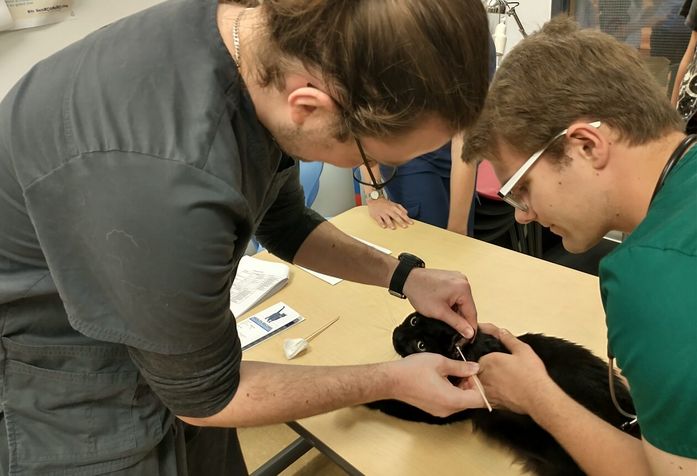Free veterinary care for street kids’ pets
- UdeMNouvelles
05/23/2023
- Virginie Soffer
In partnership with Dans la rue, UdeM’s Faculty of Veterinary Medicine is providing care for the pets of young people living on the streets of Montreal.
The day centre at Dans la rue, a community organization that helps unhoused and at-risk youth, is filled with young people and their pets—dogs, cats, even a rat. They have brought their furry friends to receive free medical care from a team of clinical faculty, support staff and third-year veterinary students from Université de Montréal’s Faculty of Veterinary Medicine.
The now-monthly service began more than 20 years ago as the brainchild of the late Father Emmet ‘Pops’ Jones, the founder of Dans la rue. He contacted André Dallaire, then Academic Vice-Dean of the Faculty of Veterinary Medicine, and the late Diane Blais, then Vice-Dean of Student Affairs, to discuss how to meet the needs of animals living with street youth. Other faculty members signed on and the partnership with Dans la rue was born. At the time, the clinic was offered every Wednesday.
Basic care for pets
At today’s clinic, a team of 10 students, five vets and four animal health technicians is giving five consultations at a time. They arrived in a truck packed with equipment and medicines, including an ultrasound machine, a microscope, vaccines and anti-parasitics, courtesy of Zoetis.
“We provide basic care for all the common problems seen in general practice, such as treatment for an infected wound, vaccination and deworming,” said veterinarian Yves Rondenay, a lecturer and assistant director at the Faculty of Veterinary Medicine. “For more complicated cases, for example if the animal needs surgery or more complex care, we refer them to our veterinary hospital or another clinic.”
Formative for vets in training
All third-year students in UdeM’s veterinary medicine program are required to complete an internship at the clinic, and it’s clearly an experience they find enriching. “It’s one of the first times they’re doing consultations on their own, although of course a trained vet always checks their work,” said Rondenay. “The students really appreciate this experience with community outreach, an aspect of veterinary medicine they may not be exposed to in class.”
In fact, some students return after graduating to volunteer as supervising vets.
One Health in action
Dans la rue outreach workers are also present during the clinic in case the young people accompanying their pets have questions or need support.
It’s consistent with the WHO’s One Health approach, which recognizes that human health is inextricably linked to the health of animals, plants and the planet.
“The clinic is an example of the community role veterinarians can play within a comprehensive One Health approach to veterinary medicine,” said Rondenay. “These young people are very attached to their pets and want the best care for them. Treating them becomes part of a holistic approach for our students.”















